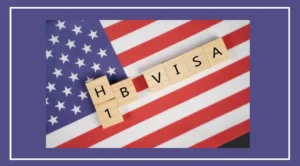In a significant move preceding the pivotal Presidential Elections, the United States has announced substantial fee increases for non-immigrant visas, including H-1B, L-1, and EB-5 categories.
These alterations mark the first fee hikes since 2016 and will be implemented starting April 1.
Impact on Indian Immigrants
H-1B, L-1, and EB-5 visas, commonly sought by Indian immigrants, will see a notable increase in fees as part of the United States’ visa service overhaul.
These changes are anticipated to reshape immigration dynamics for thousands of Indian professionals.
Fee Hike Details for Key US Visa Categories
H-1B Visa:
- Old Fee: USD 460
- New Fee: USD 780
Registration Fee: Increased from USD 10 to USD 215 (effective next year)
L-1 Visa:
- Old Fee: USD 460
- New Fee: USD 1,385
Registration Fee: No change
EB-5 Visa:
- Old Fee: USD 3,675
- New Fee: USD 11,160
Registration Fee: No Change
Impact on Immigrant Communities
The fee adjustments, coupled with changes in forms and fee structures by the United States Citizenship and Immigration Services (USCIS), will have cascading effects on net costs, benefits, and transfer payments.
These modifications are likely to influence the decisions of prospective immigrants and companies relying on skilled foreign workers.
Exploring Key US Visa Programs
H-1B Visa
A non-immigrant visa crucial for US companies, the H-1B visa allows the employment of foreign workers with specialized theoretical or technical expertise, especially in the technology sector.
EB-5 Program
Launched in 1990, the EB-5 program enables high-net-worth foreign investors to secure a US visa by investing a minimum of USD 500,000 in a US business, contributing to job creation for American workers.
L-1 Visa
Designed for intracompany transferees, the L-1 visa permits multinational companies to temporarily transfer certain employees from their foreign offices to work in the United States.
US Visa Landscape
The fee hikes and restructuring of visa services come at a critical juncture, adding a layer of complexity to the immigration landscape.
As the US prepares for key elections, these changes are expected to be a focal point in policy discussions and debates surrounding immigration.
























